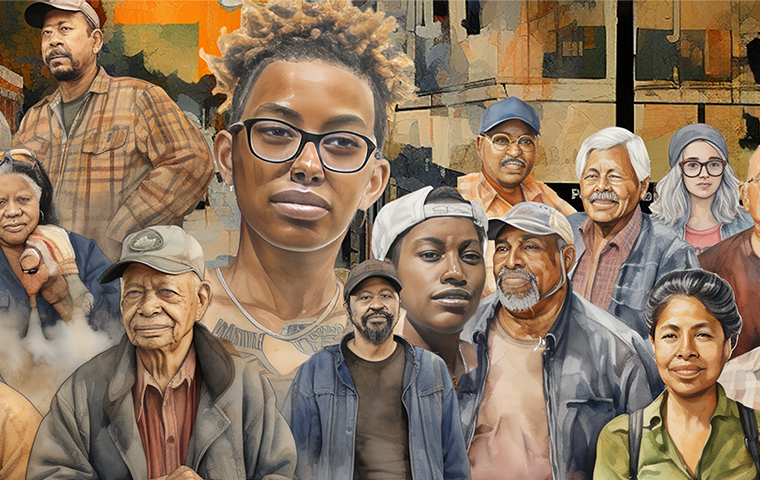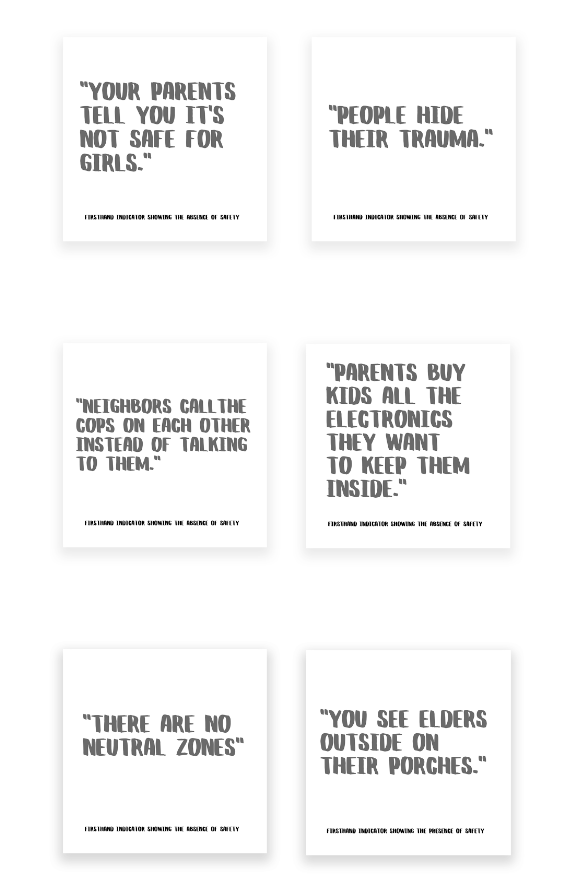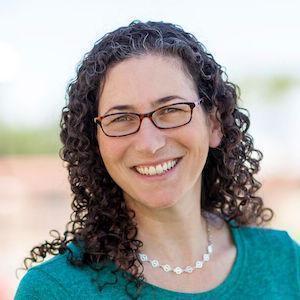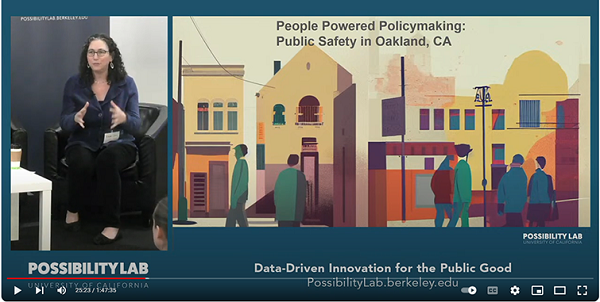
Possibility Lab, Community Organizations Release New “Firsthand Framework” Report Exploring How Oakland Residents Assess Public Safety
Artwork courtesy of The Possibility Lab
OAKLAND, Calif. January 18, 2024—The Possibility Lab at the University of California released findings today from a two-year partnership that brought together a diverse group of Oakland-based residents and asked: how do communities themselves assess public safety? In the report, Firsthand Framework for Policy Innovation: Exploring New Community-Engaged Models for Public Safety Reform, the Lab introduces the Firsthand Framework methodology which gathers rich, qualitative expertise from communities and applies it to generate quantitative, Firsthand Indicators. These indicators can be used to identify, pilot, and evaluate reforms that authentically represent community perspectives and priorities. The report demonstrates how the firsthand experiences of communities directly affected by crime and violence can be critical to designing effective public safety policies and reforms. The Lab also released an interactive data visualization tool and multimedia narrative project showcasing Firsthand Indicators and stories about the presence or absence of public safety in people’s lives.
Understanding public safety must extend beyond crime statistics and policing and instead start from community perspectives about what it means to be and feel safe—and what communities want and need to achieve safety. In addition to the traditional concerns of criminal justice policy, like policing and violence, the report describes nearly 600 Firsthand Indicators that examine public safety through a holistic lens, including dimensions of social capital, youth, health, the physical environment, and economic security. The report makes clear the need for communities and policymakers to work together in sustained partnerships to co-create effective public safety policies and solutions.
“We believe that the people who are closest to social problems are also closest to their solutions, and that the policy process works best when policymakers, researchers, and those with lived experience work hand-in-hand,” said Possibility Lab Executive Director Professor Amy E. Lerman. “But too often, we know that historically the people and communities most directly affected by public safety issues are left out of the conversation when policy solutions are being developed. Through the Firsthand Framework, we are prioritizing community expertise in the critical work of identifying, piloting, and evaluating public safety reforms.”
The Lab partnered with researchers from Santa Clara University, Brandeis University, and the Everyday Peace Indicators research group. Organizational partners working on public safety in the City of Oakland include Building Opportunities for Self Sufficiency (BOSS), Center for Empowering Refugees and Immigrants (CERI), Communities United for Restorative Youth Justice (CURYJ), MISSSEY, TRYBE, and The Unity Council. These partners facilitated the collection of Firsthand Indicators of community safety drawn from thirty-three focus groups and town halls across nine distinct communities. These discussions brought together hundreds of residents representing many of the city's diverse communities that have been most directly affected by crime and violence: Black, Latinx, and AAPI residents, immigrant families and refugees, systems-impacted youth, and more.
Sample Indicators:


“Our framework starts from the belief that individuals and communities who are most directly impacted by violence and the criminal justice system should play a central role in designing policy fixes,” said Naomi Levy, Associate Professor at Santa Clara University and Director of Community Engaged Research at the Possibility Lab. “Where earlier social justice and public health efforts have sought to expand safety metrics in order to include community perceptions and contextual factors, the Firsthand Framework stands out as a systematic, participatory effort that can be deployed to identify, pilot, and evaluate reforms. We truly thank our community partners for the trust they placed in our team and for the collaboration and expertise they brought to this work.”

The Lab is continuing to work with these and other partners to advance this project, including the City of Oakland’s Department of Violence Prevention, to create, implement, and evaluate solutions based on the Firsthand Framework. Outside of policy circles, the potential applications of the Firsthand Framework are numerous. The Framework can be used to assist in needs assessment, for project planning or grant writing, and can be employed to measure and track outcomes, both across communities and over time. For example, community organizations focused on policy issues not traditionally considered “public safety” can use these data to reframe issues like housing, economic opportunity, mental health, and more as vital priorities for cities focused on increasing public safety.
"The Firsthand Framework project was genuinely affirming for community members. To be able to go deeper, beyond binary conversations around public safety and move to true community safety, was not only refreshing, but it felt right, more centered, and like we were talking about issues with the long-term in mind, that solutions would have a more sound, comprehensive, lasting impact," said Andrew Park, executive director of Trybe. "'Nothing about us without us.' Although this is known, limited resources make it difficult to move beyond short-sighted and short-term solutions around public safety which makes the community feel as if we are doing the same thing over again expecting a different result. The Firsthand Framework is putting feet and teeth to centering community to determine how public resources are allocated. Perhaps we can move beyond public safety into community safety, with even health and wellness in mind."
Watch the Live Stream Research Launch Event
About Possibility Lab
The Possibility Lab at the University of California is a team of policy researchers and practitioners who partner with government and community to design, pilot, and scale data-driven innovations for the public good. Through ongoing collaborations, the Lab is pioneering innovative ways to center community perspectives and expertise in public policy: by working directly with diverse stakeholders to foster engagement, empowerment, and equity.